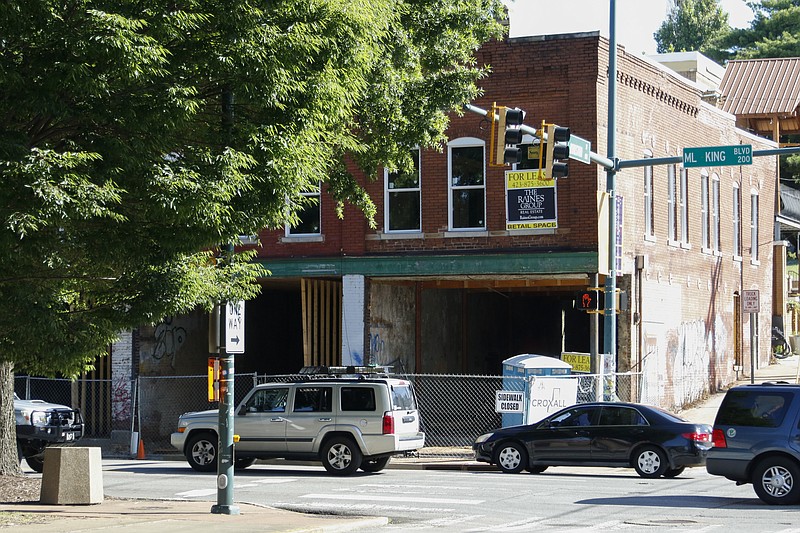No doubt you've heard about the Martin Luther King Boulevard "road diet" battle that's steadily gained momentum over the past few weeks.
In a bid to make the area stretching from Georgia Avenue to Palmetto Street more pedestrian, bicyclist and (supposedly) business friendly, the city of Chattanooga and key allies will be refashioning the road from a two-way four-lane thoroughfare into a two-way two-lane street, complete with dedicated turn and bike lanes.
Project supporters promise their pending overhaul will deliver a long list of benefits. But you can forget almost all of them. The single issue most "road diet" opponents are able to focus on is the bike lanes.
That shouldn't shock anyone, really.
After the city's strong-arm rollout of bike lanes on Broad and North Market streets in 2015 - a move that caught almost every commuter and business owner in the city off guard - any proposal that includes bicycle paths supplanting automobile lanes is going to be met with reflexive pushback.
The editorial voice of this page has refused to view the MLK redesign through a bicycle-centric lens. Though urging caution against the entire venture, the Free Press also has taken into consideration the project's impact on parking and automotive flow - not just on MLK itself, but on surrounding traffic arteries.
My opinion diverges a bit. While I do see the revamp as "a solution looking for a problem" (borrowing a Clint Cooper line from earlier this week), and I do share concern about its impact on traffic fluidity, I'm also intrigued by some of its potential perks. Namely the possibility that, as UTC expands off its topographical perch, a more pedestrian accommodating MLK corridor could spur business in an area that is poised for growth.
Though not 100 percent sold on the "road diet," I confessed earlier this month to a friend who is close to the project that I was warming up to it. After all, the city isn't going to let the leftover $1.4 million it has from a federal Congestion and Mitigation Air Quality grant go to waste. And of all the options out there, the MLK renovation could make sense.
"Good," my friend responded. "Because it's happening." Case closed. Sure, there may still have been some petition signature-gathering and debate happening, but those were apparently just window dressings. The deal has long been done.
I wasn't surprised. Another, more pessimistic friend of mine once told me that the public input part of "The Chattanooga Way" is often just a choreographed exercise orchestrated by power players who need to give the illusion that the projects of their choosing have community buy-in. If true, the MLK "road diet" could be Exhibit A for that practice.
Is that overly cynical? You tell me.
Whatever the case, it's become obvious that if any sizable undertaking is pursued in this town without resident comment it will likely encounter strong headwinds of discontent. And what the architects of the upcoming MLK overhaul realized is that when one scheme is badly mismanaged - as was the original bike lanes unveiling - it negatively affects similar future endeavors, no matter their merits.
A problematic precedent was set in 2015 with the city's botched "trust us, they're good for you" bike lanes rollout. It infuriated thousands of locals while simultaneously providing legacy public relations headaches for any future projects incorporating bicycling accommodations.
If there's a lesson in all this, it's that most Chattanoogans have bought into the notion that we live in a town that appreciates widespread civic input - and we like that idea. Whether that feedback is truly valued, it's important that it appears that way.
Even if it's an illusion.
Contact David Allen Martin at davidallenmartin423@gmail.com and follow him on Twitter @DMart423.

